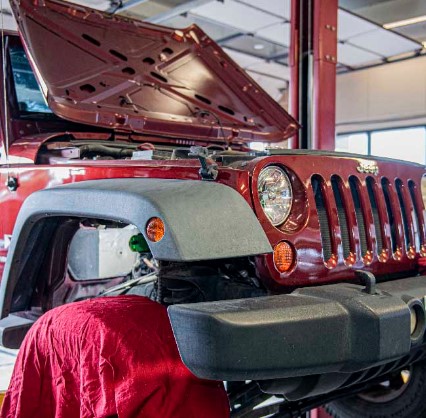In the hustle and bustle of daily life, it’s easy to overlook the importance of regular car maintenance. However, neglecting your vehicle’s upkeep can lead to costly repairs and safety hazards down the road. Whether you’re a seasoned car enthusiast or a novice driver, understanding the basics of car maintenance is essential for ensuring the longevity and performance of your vehicle. In this comprehensive guide, we’ll delve into the various aspects of car maintenance, from routine checks to more advanced procedures, empowering you to become a responsible and knowledgeable car owner.
Understanding the Importance of Car Maintenance:
Car maintenance is more than just changing the oil and filling up the gas tank; it encompasses a range of tasks aimed at preserving the health and efficiency of your vehicle. Regular maintenance not only extends the lifespan of your car but also enhances its resale value and ensures safe driving conditions. By staying proactive with maintenance checks, you can identify potential issues early on and address them before they escalate into major problems. Ultimately, investing time and effort in car maintenance pays off in terms of reliability, performance, and overall driving satisfaction.
Creating a Maintenance Schedule:
Developing a structured maintenance schedule is key to staying on top of your car’s upkeep. Consult your vehicle’s owner’s manual for manufacturer-recommended maintenance intervals, which typically include tasks such as oil changes, tire rotations, and fluid inspections. Additionally, consider factors such as your driving habits, climate conditions, and mileage when determining the frequency of maintenance checks. By adhering to a regular schedule, you’ll ensure that essential maintenance tasks are performed in a timely manner, minimizing the risk of unexpected breakdowns and costly repairs.

Essential Maintenance Tasks:
a. Oil Changes: Regular oil changes are vital for keeping your engine running smoothly and efficiently. Over time, engine oil becomes contaminated with dirt and debris, leading to increased friction and wear. Follow the manufacturer’s recommendations for oil type and change intervals, typically every 5,000 to 7,500 miles for conventional oil and longer intervals for synthetic oil.
b. Tire Maintenance: Proper tire maintenance is crucial for optimal handling, traction, and fuel efficiency. Check tire pressure regularly using a gauge and inflate them to the recommended levels specified in your owner’s manual or on the sidewall of the tires. Inspect tires for signs of wear, such as uneven tread wear or bulges, and rotate them periodically to ensure even wear patterns and extend their lifespan.
c. Fluid Checks: Regularly check fluid levels, including coolant, brake fluid, transmission fluid, and windshield washer fluid. Low fluid levels can indicate leaks or other underlying issues that require attention. Inspect fluid condition and color, as discolored or contaminated fluids may signal potential problems with the corresponding systems.
DIY Maintenance Tips:
While some maintenance tasks require professional expertise, there are several DIY tasks that you can perform at home with basic tools and knowledge.
a. Changing Air Filters: Air filters prevent dirt and debris from entering the engine and cabin air systems, ensuring optimal performance and air quality. Check your owner’s manual for the recommended interval for air filter replacement, typically every 12,000 to 15,000 miles, or more frequently in dusty or polluted environments. Replacing air filters is a straightforward task that can be done with minimal tools and time.
b. Checking Battery Health: A healthy battery is essential for starting your vehicle and powering electrical components. Periodically check the battery terminals for corrosion and ensure a secure connection. Use a battery tester or multimeter to measure the voltage and assess the battery’s health. If the battery is nearing the end of its lifespan or showing signs of weakness, consider replacing it to avoid unexpected failures.
Advanced Maintenance Procedures:
While basic maintenance tasks can be performed by most car owners, certain procedures require specialized knowledge and equipment.
a. Brake System Maintenance: The brake system is critical for vehicle safety, so it’s essential to inspect and maintain it regularly. Check brake pads and rotors for wear and replace them as needed. Bleed the brake lines periodically to remove air bubbles and maintain proper brake fluid pressure. If you’re unfamiliar with brake system maintenance, it’s best to seek professional assistance to ensure safe and effective results.
b. Engine Tune-Ups: Engine tune-ups involve a comprehensive inspection and adjustment of various engine components, including spark plugs, ignition timing, and fuel injectors. A well-tuned engine ensures optimal performance, fuel efficiency, and emissions compliance. While modern vehicles may require less frequent tune-ups due to advanced engine management systems, older vehicles with traditional ignition systems can benefit from periodic tune-ups to maintain peak performance.
Conclusion:
Maintaining your car isn’t just about preserving its appearance; it’s about safeguarding its reliability, performance, and safety. By following a proactive approach to car maintenance, you can minimize the risk of breakdowns, prolong the lifespan of your vehicle, and enjoy a smoother and more enjoyable driving experience. Whether you’re performing basic checks at home or entrusting your car to professional technicians, prioritizing regular maintenance is essential for keeping your vehicle in prime condition for years to come.